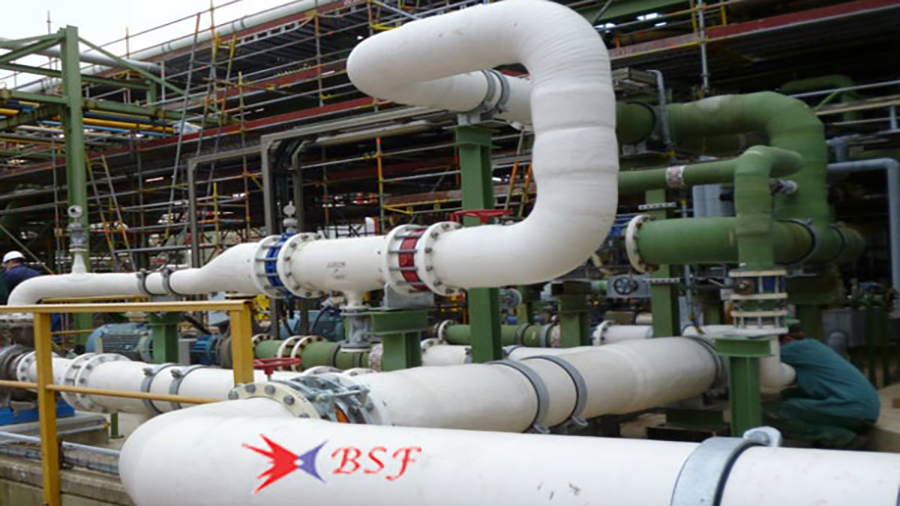The Importance of FRP Pipes & Fittings in Chemical Processing Units
The Importance of FRP Pipes & Fittings in Chemical Processing Units
Posted on july 10, 2025 10
10 july,25
Chemical processing units require high quality piping systems to survive extreme pressures and aggressive substances. FRP (fiberglass-reinforced plastic) pipes and fittings an ideal choice that offer multiple advantages if made with proper resin, adequate support and well-designed structure.
FRP pipes and fittings have three main layers- an inner lining that protects against abrasive chemicals, a structural layer covered in glass fibers for endurance and an outer layer which fights against UV rays and other environmental damage.
Let’s discover the advantages of FRP pipes and fittings:
1. Traditional materials like steel or metal pipes are highly susceptible to rusting; leading to frequent leaks and system failures. These pipes need constant replacements, ultimately increasing its maintenance costs. However, FRP pipes and fittings are a not only genius but a cost-effective option as they are able to endure corrosion and withstand a variety of acids, alkalis and solvents under intense pressures. They tend to have minimal maintenance needs, ultimately reducing the frequency of replacements. Moreover, these pipes are said to last for 20 to 40 years while some suggesting 100 years of lifespan.
Nevertheless, improper resin, inadequate maintenance, extreme temperatures all such factors can reduce its lifespan.
2. They are durable and lightweight in nature. Their lightweight construction helps make transportation and installation more convenient compared to other pipes; eventually reducing labour cost.
3. One of the unique features of it is that is provides a room for customization. They can be produced in various diameters, shapes and thicknesses to meet distinct requirements of a particular application.
4. Environmental sustainability has become crucial more than ever. As mentioned above, FRP pipes have a prolonged lifespan which lowers repairments cost, thereby, decreasing industrial waste.
In conclusion, the decision of choosing the right piping material is essential for optimized performance, security and financial efficiency. FRP pipes and fittings have proven to be a catalyst for change, offering durability, customization, resistance to corrosion whilst being eco-friendly. As industries continue to advance, FRP constructions align with the growing demands of safe and sustainable layouts.
The Importance of FRP Pipes & Fittings in Chemical Processing Units
Chemical processing units require high-quality piping systems to survive extreme pressures and aggressive substances. FRP (fiberglass-reinforced plastic) pipes and fittings are an ideal choice that offer multiple advantages if made with proper resin, adequate support, and well-designed structure.
FRP pipes and fittings have three main layers: an inner lining that protects against abrasive chemicals, a structural layer covered in glass fibers for endurance, and an outer layer that fights against UV rays and other environmental damage.
Let’s discover the advantages of FRP pipes and fittings:
1. Traditional materials like steel or metal pipes are highly susceptible to rusting, leading to frequent leaks and system failures. These pipes need constant replacements, ultimately increasing their maintenance costs. However, FRP pipes and fittings are not only great but also a cost-effective option, as they are able to endure corrosion and withstand a variety of acids, alkalis, and solvents under intense pressures. They tend to have minimal maintenance needs, ultimately reducing the frequency of replacements. Moreover, these pipes are said to last for 20 to 40 years, with some suggesting a lifespan of 100 years.
Nevertheless, improper resin, inadequate maintenance, extreme temperatures—all such factors can reduce its lifespan.
2. They are durable and lightweight in nature. Their lightweight construction helps make transportation and installation more convenient compared to other pipes, consequently reducing labour costs.
3. One of the unique features of it is that it provides a room for customization. They can be produced in various diameters, shapes, and thicknesses to meet distinct requirements of a particular application.
4. Environmental sustainability has become more crucial than ever. As mentioned above, FRP pipes have a prolonged lifespan, which lowers repair costs, thereby decreasing industrial waste.
In conclusion, choosing the right pipe material is essential for optimized performance, security, and financial efficiency. FRP pipes and fittings have proven to be a catalyst for change, offering durability, customization, and resistance to corrosion while being eco-friendly. As industries continue to advance, FRP constructions align with the growing demands of safe and sustainable layouts.